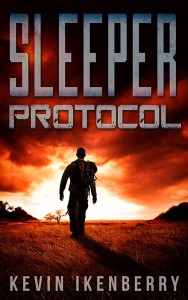I have a confession to make. I have not written one productive word in about a year or so.
Oh, I’ve tossed down words for new ideas and gone over my current WIP, but I accomplished nothing of any consequence that even approaches a finished piece. Over the last month, I’ve been forcing myself back to the page every day in an attempt to push through my current block.
The problem isn’t that I don’t have a story to tell. I’ve got a billion stories to tell. My imagination runneth over. It isn’t that my story isn’t good enough. I love the story I’m working on. And it’s not a time-management issue, either. I can always squeeze in a little writing. Yet, I still can’t seem to get what I’ve got in my head onto a page. Every time I sit down, I feel like I’m getting ready for Chinese water torture. All the while, I watch my fellow Fictorians publishing their work, and I’m thinking, What the hell is wrong with me!?
For a while I was convinced I’d lost my bliss. Perhaps writing just isn’t what I’m supposed to do with my life.
A bit of backstory on me is that I’m addicted to Audible – Amazon.com’s audiobook retailer. I’ve probably listened to more books than I’ve read by tenfold over the last year. So, it may not be that surprising that, when Audible does a sale, I tend to peruse the offerings and will usually pick up a few books I would normally not even glance at. Recently, I did just that, and ended up listening to a book called The Way of the Seal by Mark Divine, an ex-Navy Seal. Yes, it’s a self-help book, but it’s all about finding where you’re supposed to be in life and focusing on attaining it. The interesting thing about this particular book, for me, is that even though I haven’t tried any of the exercises or the work that the book suggests, it still got me thinking about what I’m doing with my life. From that I’ve come to realize something rather important.
Maybe not every block is writer’s block. Maybe it’s life block.
My real problem is that I’m nowhere near a good place emotionally, which has severely affected my ability to write. I’m living in a house (which was my mother’s and now belongs to her estate) that I don’t particularly want and can barely afford but can’t sell due to the market in my area—major frustration. My day job is an hour to an hour and a half commute to mind-numbing drudgery and busywork that offers neither challenge nor opportunity—the result of a lifelong avoidance of all responsibility. And all that’s waiting for me at home are my two cats—yes, I am a crazy cat lady in the making. That’s not even getting into ridiculous health issues. Honestly, I feel like a wreck, and not the kind that prompts the insurance company to cut a check so you can go out and buy something shiny and new. More like the kind that just keeps chugging along, held together by duct tape and wishful thinking.
It’s easy to forget how life can get in the way of what we love in ways other than trying to juggle a schedule. There we are, cranking out the words, until something happens and the words just stop. So often, it’s hard to connect two seeming unrelated things as, say, paying a mortgage that isn’t actually mine with writing a chapter of fiction.
So, my intention this year is to get back to writing every day and finish the book I’ve been working on for far too long. The manner in which I plan on doing this is not by forcing the words out, but to focus on pulling myself out of the suck, getting myself in a better place and situation, and freeing up all that emotional energy I’d rather be using to gleefully turn the water torture on my characters.











